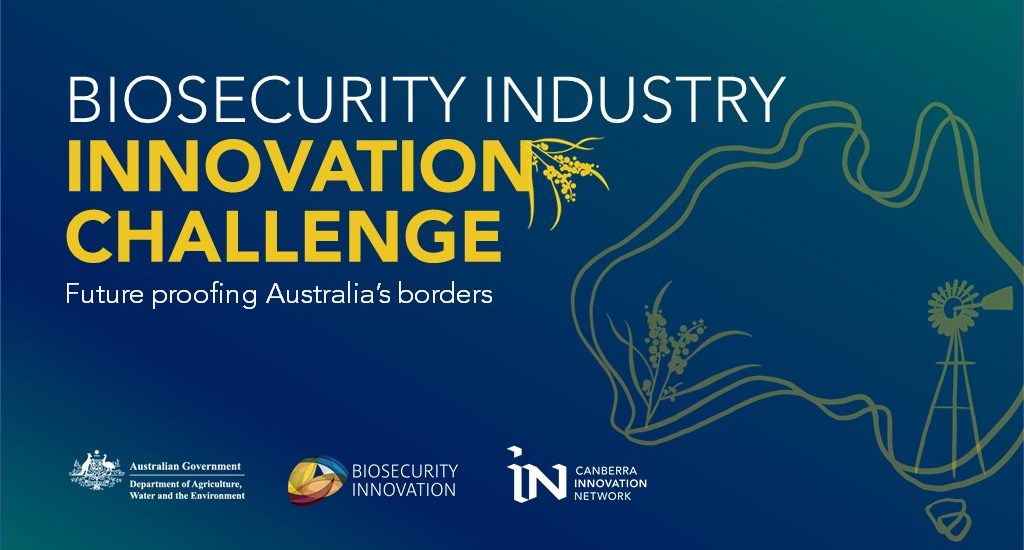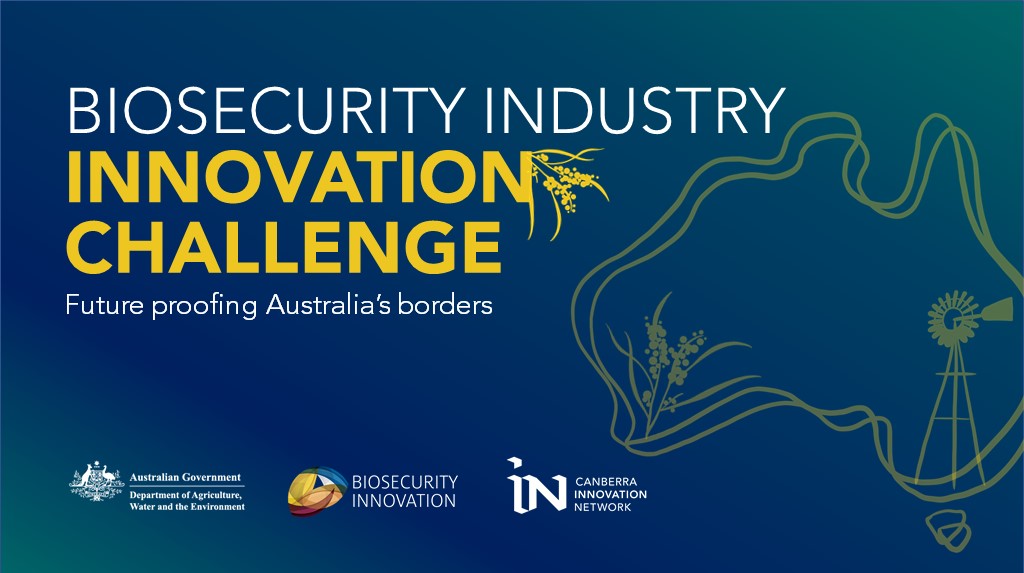- 8 October 2020
- Posted by: Canberra Innovation Network
- Category: Event News

Complex and critically important issues, such as those in Australian biosecurity, require collaborative and innovative solutions. That is why on the 26th May 2020 the Department of Agriculture, Water and the Environment (department) partnered with the Canberra Innovation Network (CBRIN) to deliver a Biosecurity Industry Innovation Challenge. The challenge was set to call on Australia’s brightest minds from industry and research to help solve four key challenges in biosecurity. The innovative teams were competing for a funding allocation of $50k from the Biosecurity Innovation Program and the opportunity to further develop their innovative idea through a 12-week business incubation program with the CBRIN.
121 registered participants from across Australia tuned in to this virtual innovation challenge, with three of the proposals being successfully taken forward for in-depth mentoring and business coaching to bring their concept or prototype and turn it into a viable business.
Petr Adamek, CEO of the CBRIN said, “seeing a department of the Federal Government have the courage to seek solutions to some of their biggest issues through open collaborative innovation is what inspired many of these quality innovative concepts from all over Australia.”
The teams that have progressed through to the incubation represent Canberra, Melbourne and the Northern Territory, with each of them working on a different challenge set forward by the department, including combatting exotic invasive ants, auditing and treatment verification.
The team from Canberra, called Zirkata took on the challenge to improve the auditing process, which currently is a manual and resource intensive method from preparation through to reporting. The solution is to streamline the process where audits can be taken off site using a real time communications platform utilising geospatial technology, electronic forms, video and photos to help reduce the inconvenience and time required to conduct successful audits.
Dylan Kendall, Founder and CEO of Zirkarta said “having access to a large potential customer, such as the Department of Agriculture, Water and the Environment has provided us with a massive opportunity for our company.”
“The fundamental difference with this program is the CBRIN actually assessed if the standard playbook was applicable and made appropriate adjustments. That is, it was an innovation program, that was actually innovative itself.”
Detecting and stopping exotic evasive ants is quite a big issue in biosecurity and a team from within the Northern Territory Government have found a safe way to lure ants to traps using pheromones. The current process uses traps with food-based baits, which also attracts other native species. The new design will be able to withstand Australia’s harsh landscape and weather conditions and target particular types of invasive ants. Using a robust dome shaped trap with a lid will detain the ants without damaging them.
The third challenge was based on treatment verification and finding an innovative process that monitors the fumigation process of imported goods in Australia. A team from Melbourne, SensaData developed a solution called Smart-r-Tag, which is essentially placed on the fumigated goods, calculating the gas concentration, along with temperature and humidity. These findings are then electronically provided to the biosecurity team proving quality assurance and accuracy.
Following an intensive incubation program, these three teams pitched their progress back to an audience of 72 representing the department on Wednesday 23rd September 2020; including the Deputy Secretary for the Biosecurity and Compliance Group, Andrew Tongue, Assistant Secretary’s, Directors and policy makers from across the department.
This program presented a huge opportunity for the department to access solutions which wouldn’t have emerged if it wasn’t for this open collaborative process. The teams benefited from working on these solutions in collaboration with the customer and with access to innovation mentoring.
The program has exceeded the department’s expectations because teams trialed their protypes already in the field, which was beyond the initial scope. It has shown that Federal Government can successfully and efficiently collaborate with industry through open collaborative innovation and that solutions can get in the hands of users very rapidly.
If you would like to keep up to date with the latest innovation news and technology visit cbrin.com.au.

